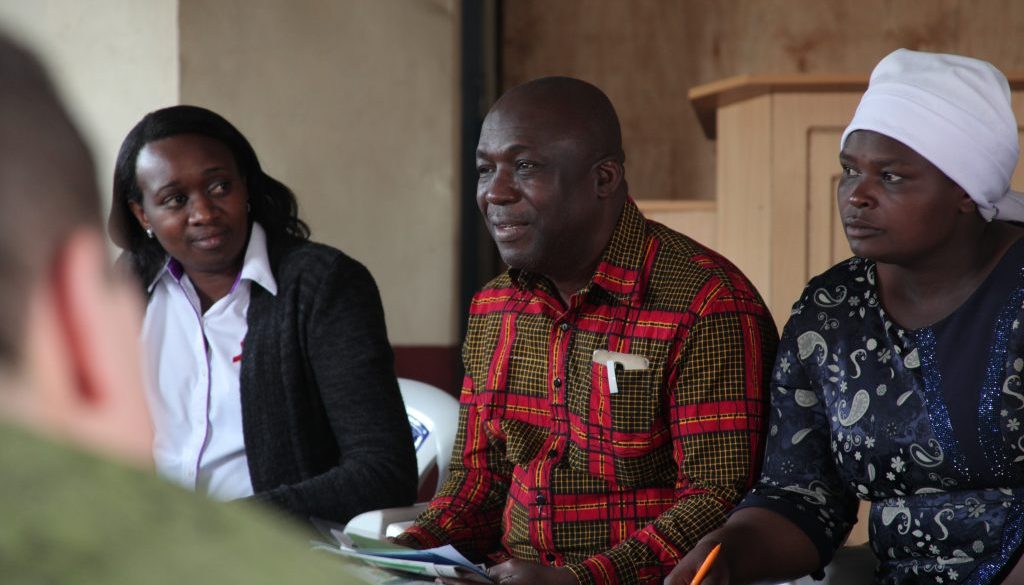A letter from Kenya on the impact of the potential UKRI funding cuts
The UKRI research budget is facing cuts that may affect our ability to continue with work within ARISE. Our team in Nairobi, Kenya from APHRC – Blessing Mberu and Caroline Kabaria – reflect on what potential reductions in the budget for this work means on the ground.
Now and into the foreseeable future, Sub-Saharan Africa is expected to have the highest rates of urban growth of any major region, and with its cities already having the highest proportion of slum-dwellers and urban poverty, the policy challenge for solutions remain enormous.
As cities continue to attract excess rural populations and people looking for economic opportunities, slums’ share of the urban population will continue to grow, particularly in fast developing and low-income countries where the rate of urbanization exceeds urban systems’ ability to scale services. One key feature of African urbanization is the associated degradation in human dignity engendered by intra-urban inequities.
Significant investments in evidence generation and policy and programmatic interventions will be needed in the coming years if sustainable urban living is to be achieved.
In seeking answers to these challenges, the ARISE Hub funded by UKRI provided a unique opportunity to begin the measurement and documentation of these issues through a spectrum of research methodologies and equitable collaboration among various global Northern and Southern experts.
Data gaps in urban informal settlements
Several key questions arising from past and future research investments relate to how to achieve improved health and economic outcomes for the urban poor. What particular interventions work and which did not? Answering these questions and taking adequate stock, require appropriate data at the local levels. The importance of local-specific data systems is reinforced by the limitations of global and national level data sets, which generally produce national indicators that blur inter and intra sub-group inequities and often lack aggregation at local levels, where the needs are located
To address this gap, the ARISE Hub in collaboration with African Population and Health Research Center collected and documented evidence to inform policy and action in Kenya. This is informed by the perspective that sustained significant investments in data systems at local levels will be an important component of the push to address urban challenges, especially in monitoring and evaluation of interventions and in determining what works for specific sub-groups of the urban population, including migrants, refugees, asylum seekers, non-migrant and several vulnerable sub-groups. This work which has taken place in the last two years may be jeopardised if the UKRI funding cuts did not exempt and protect such efforts.
The importance of participation
As part of the search for pathways to address urban inequities, promote inclusive urban development and build resilient and healthy cities in Africa, our Hub has set up research infrastructure that have employed public participation methodologies, including community recruited co-researchers in the co-identification and definition of community problems.
Our approach supports communities to be active drivers of the charge towards the promotion of equity, security, health and well-being in informal urban settlements. This is the process of working with marginalized people living in poverty in informal settlements to create strategic alliances for collective action to demand rights, and improved accountability and responsiveness of services to promote health and wellbeing. It involves the convening of fora that enable dialogue and build coalitions of residents of informal urban settlements, formal and informal actors and service providers to set priorities, co-develop, and test actions for change in accountability, promote service provision and system responsiveness.
This model research engagement is being shaken and may be aborted if the funding cut announced by the UKRI are not reversed or in the worst-case scenario, affirmatory and protective initiatives of such unique outreaches and engagements on behalf of the British people and Government are not undertaken.
Supporting students
Linked to this agenda is capacity building at Masters and Doctoral degree levels together with exchanges and collaborations to develop a critical mass of African and Africanist and young Global South researchers that will continue to champion evidence generation, knowledge management and evidence-based advocacy for cities, citizens and governance through the 21st Century and beyond. This program, has kicked off to a great start and enthusiasm with up seven Doctoral and two Masters Students from India, Bangladesh, Kenya and Sierra Leone, all whom are registered at Liverpool School of Tropical Medicine.
For ARISE this typifies the evidence of collaboration and equitable global partnership, which was a set goal under the grant. The danger to this initiative is looming under the UKRI proposed funding cuts and the opportunity cost to global health and UKRI and LSTM’s contribution in capacity building for public health will be significant and will be a very great lost opportunity.
To conclude, as we strive to make cities and human settlements inclusive, safe, resilient, and sustainable we will require sustained investments informed by credible local scientific evidence. It is important to develop and implement tested, context relevant service delivery models that engender inclusiveness and address intra-urban inequities. Identifying and promoting empowerment of communities as active drivers in the vision of co-creation of development, sustaining past and future investments in data collection, evidence generation at local levels and capacity building at graduate levels will need to be prioritised, protected and sustained.

Un-Global Britain – ReverseODAcuts
28/03/2021 @ 15:08
[…] A Letter from Kenya from ARISE consortium. […]